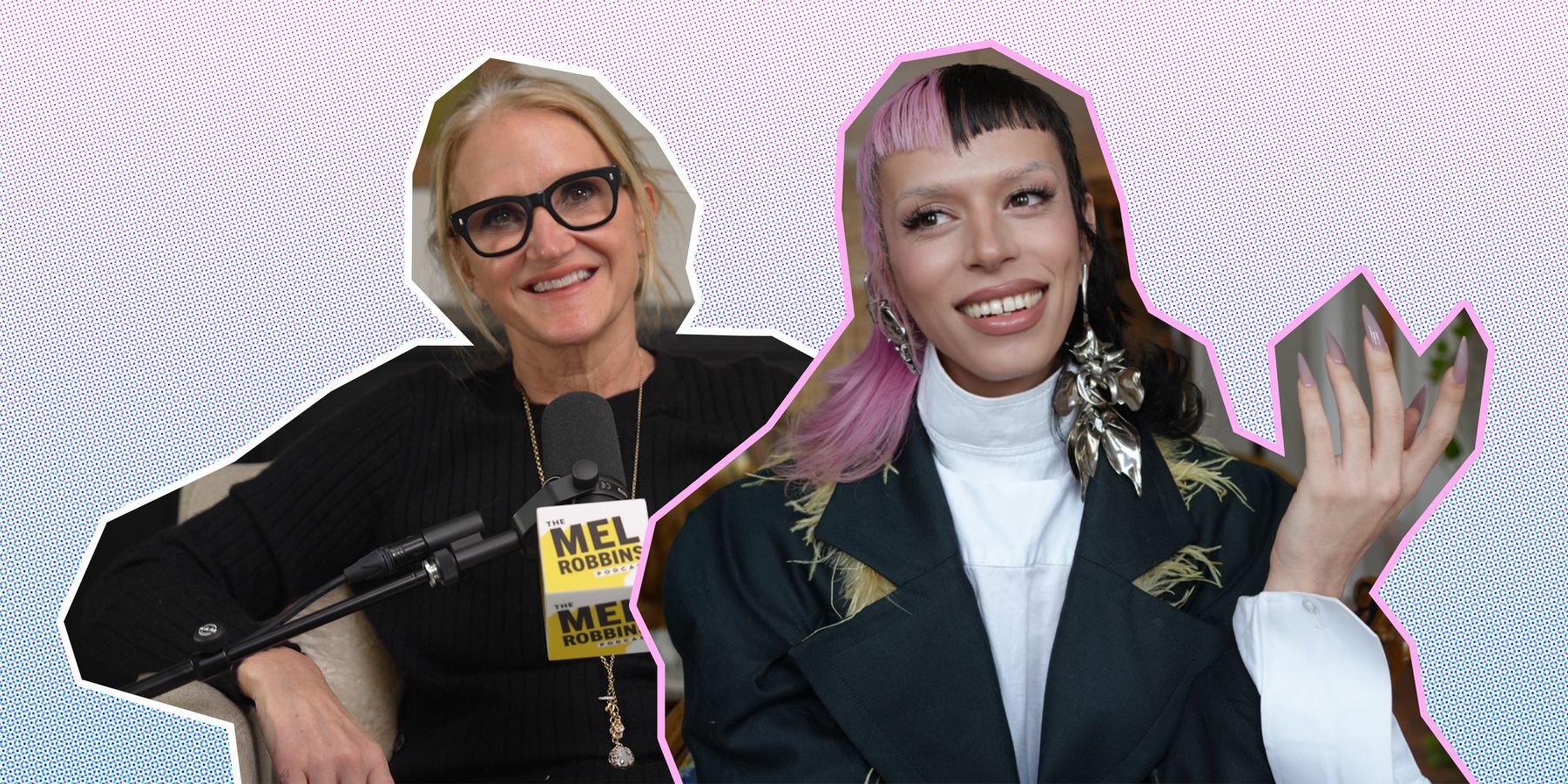
Mel Robbins and Jeauni Cassanova Talk About Self-Love
BY
Justin Moran | Feb 14, 2025

Mel Robbins is the award-winning podcast host and New York Times #1 best-selling author behind The Let Them Theory, a book and science-backed guide to focusing on your happiness, goals and life. For Valentine’s Day, we set Robbins up with PAPER favorite Jeauni Cassanova, who is not only a New York City style star but also a budding expert on all things romance through her Substack, With Love. Below, the two dive into self-love and beyond.
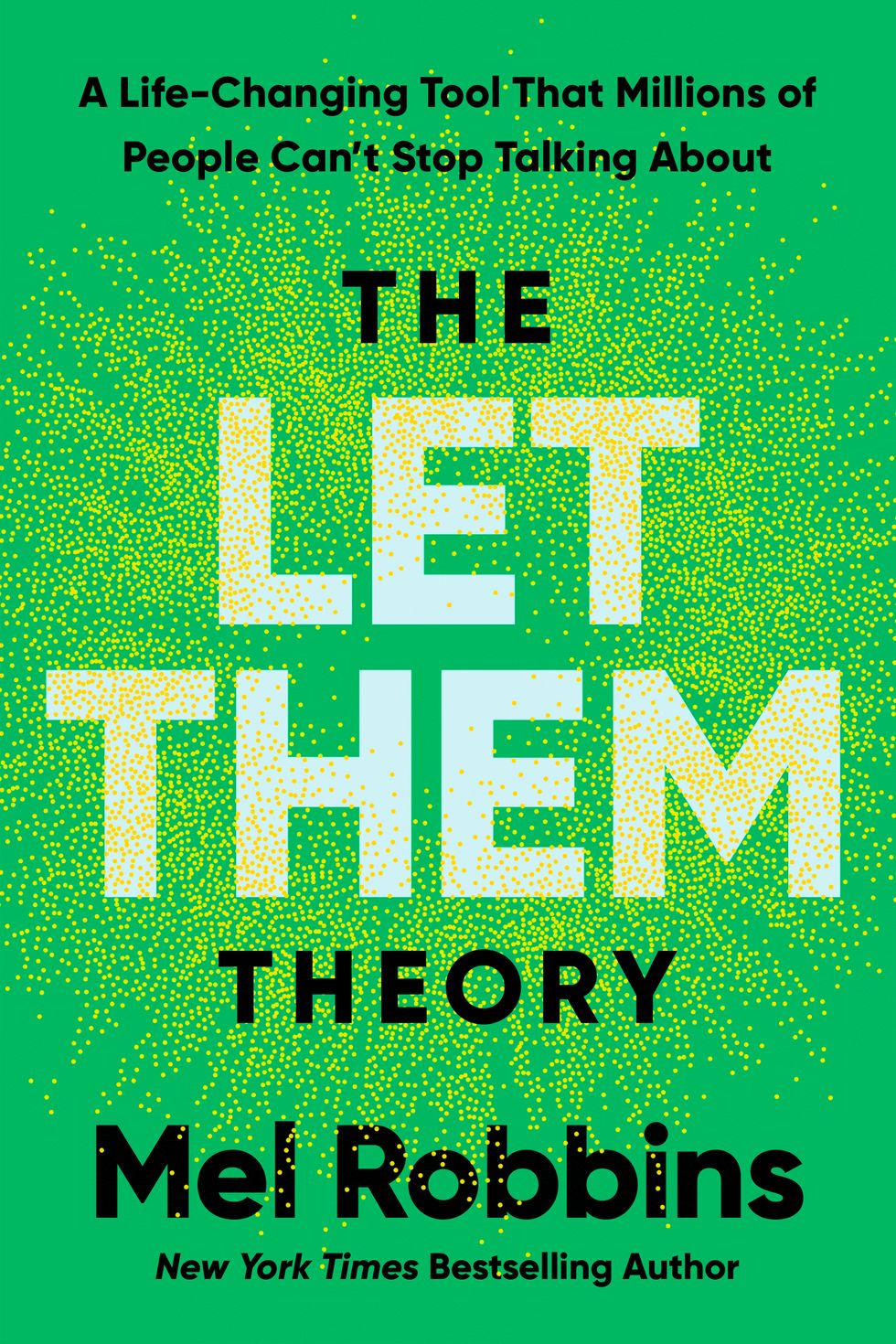
Mel Robbins: You're the kind of person that deserves a name that makes you feel really zingy.
Jeauni Cassanova: It goes quite well with my middle name, Cassanova.
Mel: Are you shitting me? That's your middle name? Jeauni Cassanova, that is a fucking cool name.
Jeauni: Love is the most important thing to me in this world, so it feels like such a fitting name for me.
Mel: I agree. Can I ask you a question? What is love to you? Do you have a definition for love?
Jeauni: It's changing so much the more I experience it. When I was younger, or even up until a few years ago, I viewed [love] as something that completed you, and now I'm realizing and experiencing that it is an unraveling of oneself — like a return to the palace that exists within us already. It's like turning on the lights and rooms that we've forgotten existed and cleaning them with someone, and it's been such a blessing to be able to experience that.
Mel: Wow. I'm so glad you recorded that, because that line you said about turning on lights in rooms that you didn't know existed, but when they come on it feels familiar. That was like... take it, run with it. Wow.
Jeauni: Thank you. The Let Them Theory is such a pillar, and I'm discovering it for the first time. I'm interested in how you want to communicate how it relates to love and self-love.
Mel: It's an amazing question and you're the first person that's asked me that, so thank you for the question. I'm really curious to hear your answer, and whether or not we see something similar. First, I want to talk about self-love. One of the biggest barriers to loving yourself is all the time and energy and effort that you spend trying to get other people to love you as you are. As long as you are chasing validation or approval, and you think that you being lovable or worthy of love is somehow outside of you, there’ll always be a deficit in your ability to fully love and accept yourself because you've given this thing [away] that is fundamental to your existence. The fact that you're alive makes you worthy of love.
Because of our childhoods and the way that human beings are designed, we need other people. So as children, for our survival, we have to be attached to other people. We have to have approval of other people. We have to have people pay attention to us. But then somewhere along the line, we don't realize that we've got to take that back and realize that the source of all love comes from within. It comes first and foremost from how you see, speak to and treat yourself.
And so The Let Them Theory, for me, was a huge wake up call in the way that I had been going about life. Even though I felt like by the time I was 54 I had a very solid relationship with myself, I liked the person that I had worked hard to become, I looked in the mirror and could see somebody that I was rooting for, and I treated myself in a way that is aligned with caring for yourself, I still gave so much power to other people's opinions. I still questioned whether or not I was an okay person based on how other people felt. The Let Them Theory really can empower you because the more you say “let them,” the more you realize you've been giving power to other people's opinions and, in doing so, withholding the very love that you need from yourself. What about you, what do you think?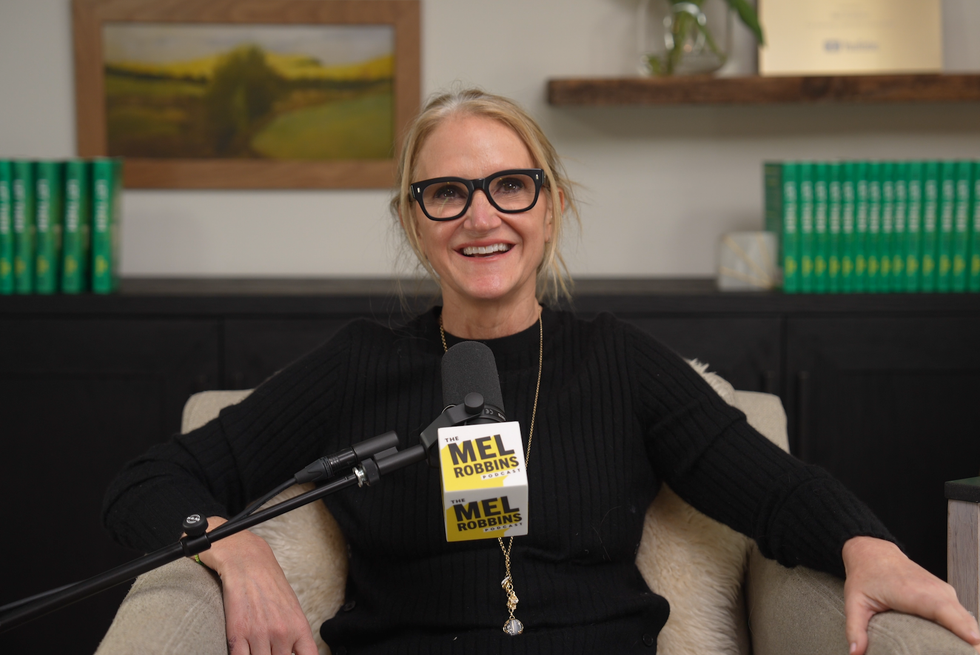
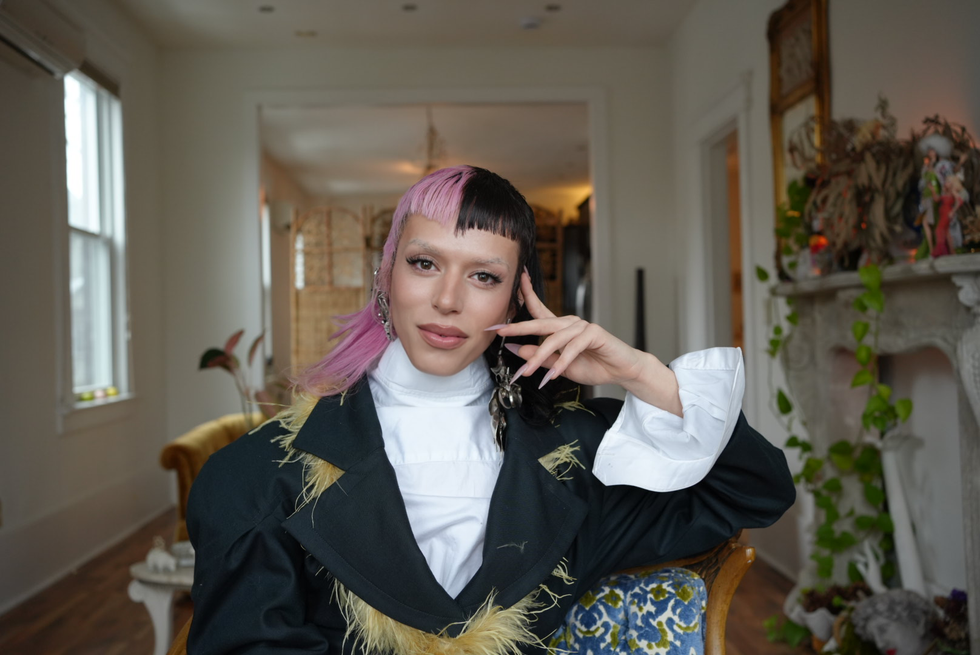
Jeauni: When I saw The Let Them Theory, I thought about all the moments that I have not let others experience the love I'm giving authentically and also not letting other people give me the love that is authentic to them. One of the biggest learning lessons I've had in the past few years with the person that I'm seeing now is in the beginning, they could never love me enough. Love was never enough, no matter how big. And then I realized that I wasn't letting them love me the way that love is true to them.
Mel: You just put a whole new twist on this, because what you're basically saying is that there's a whole different angle to Let Them, which is: are you even letting somebody love you fully, and how can they, if you will not let them see you fully? Wow, you're a genius.
Jeauni: That’s you, but I think love is a genius experience. Without it, we wouldn't have these moments, these breakthroughs. When I read [The Let Them Theory], I thought about that moment in particular where I had constantly been seeing all of the things that were missing, and I wasn't letting this person love me. And when you constantly give someone so many notes on what they're doing wrong or what you need — ”I need more of this, I need more of this” — you don't Let Yourself, as well. You're not letting yourself experience the love that they are giving you, or even see it.
Mel: I've never thought about it this way. I have thought a lot about happiness and how one of the fundamental aspects of being a happier person is allowing yourself to be, and you just revealed this truth that I don't think a lot of us think about, which is: are you even allowing the person you're with to fully see you? Because if you don't let somebody see who you are, which means being honest and being yourself, then you're not actually letting them love you as you are. And if you're so busy trying to make it work, you're also not going to let this person love you as they're trying to.
Jeauni: You can't receive the love, which I couldn't. I couldn't ever feel the love inside of me or hold on to it. I remember he said to me, “Why can't you hold on to the good moments?” And it purely was because I was looking at the deficit of all of the things, rather than letting the love seep in and exist there.
Mel: This is so beautiful, it really is. Because The Let Them Theory has two parts. It has the part where you say, “Let them,” in terms of letting people be who they are, whereas you're the first person that has lasered in on, actually, it's not just about letting go — it's also accepting and allowing, which then brings more to you, which is such a beautiful reframe. I love it.
Jeauni: I want to ask you if there was a moment you realized that self-love wasn't just a feeling, but a practice for you?
Mel: So it's a super cheesy story.
Jeauni: My favorite.
The fact that you're alive makes you worthy of love.
Mel: Okay, good. This project I was working on canceled, so I'm unemployed. This is literally just a few years ago. I'm standing there in my bathroom, and I'm in my underwear and one boob is hanging lower than the other. I used to look in the mirror, and I would go through all of the things that I don't like, from the gray hair coming in to the dark circles under my eyes. As I stood there doing what I always did, which was visually criticizing myself as I'm brushing my teeth, I looked in the eyes of the person in the mirror and I felt this sadness. I saw this person in the mirror who was trying her best, who felt beaten down, who felt like yet another door had just closed. And for whatever reason, I decided to reach up my hand and touch my hand in the mirror. And then that was it.
I laughed because it was so cheesy. I'm like, This is ridiculous, but I definitely felt a bit better. And the next day, I high-fived myself again and I started to feel better. I ended up wondering why this was making me feel better, and I bumped into this field of study called neurobics, which is like aerobics meets your brain. It turns out that one of the fastest ways to rewire the way you think and talk to yourself is using neurobic techniques, which is where you marry a thought pattern with unexpected physical motion. So interestingly, what's happening when you high-five yourself in the mirror, is that for your entire life you and I have watched people high-five each other, and a high-five always means. “I got you. I see you. Great job. Get back in there. Keep going.” Well, all of that meaning and programming is already in your brain and body, and it's associated with high-fives.
So what I discovered is that, you don't say anything — no mantras, no positivity. The gesture does all the work as you go to high-five yourself. All of that positive programming actually gets aimed at your reflection. I asked my husband to try it. And at this point in his life, he felt that he had failed in terms of the traditional role society puts on a heterosexual man — that his job was to provide for his family, to make money. Years ago, he had failed in the restaurant business and nearly bankrupted us. So when he looked in the mirror, I had no idea that as I'm staring at my wrinkles and picking myself apart, he was actually seeing a person that had failed to amount to anything. It was this major breakthrough for us, for him to force himself to [high-five], because it opened up this conversation about the private ways we destroy ourselves and we withhold love from ourselves.
We did this big research study around high-fiving yourself in the mirror after you brush your teeth, do not say a mantra, just silently do it for five days. And the results were unbelievable. There wasn't a single person in the study of over 100,000 people that said it didn't make them feel better. What I did find that's really sad is that 50% of people can't actually look at themselves in the mirror because they don't like who they see. And if you begin your day and you're not able to look at yourself in the mirror, that is a habit of self-rejection. So for me, that entire experience and the research that we did literally confirmed that self-love isn't a feeling. Self-love begins with the actions that you take that demonstrate love.
And I actually think love is very simple and available to all of us at any time. Two things have to be present for you to feel love: number one, there has to be something about the experience or the other person or yourself that you admire. And it might just be that you got out of bed today. It might be that you showed up for this conversation. And the second thing that needs to be present, this is my definition of love, is consideration. Do you have the person in mind? When your partner makes your latte in the morning with oat milk because that's what you like, that's an act of love. Thinking about this as simply finding something to admire in yourself, and having yourself or someone else in mind as being a way to bring love into your life and keep it in your relationships. It's changed me from thinking it's this big thing to a small thing that's around you at all times.
Jeauni: I couldn't agree more. Because I think that's the same shift that's happened for me. It has gone from this fairy tale, dream-like thing [to] being an endless series of steps and experiences that let someone know that you see them and that you're continuously seeing them. That is so much more magical than I ever thought was possible.
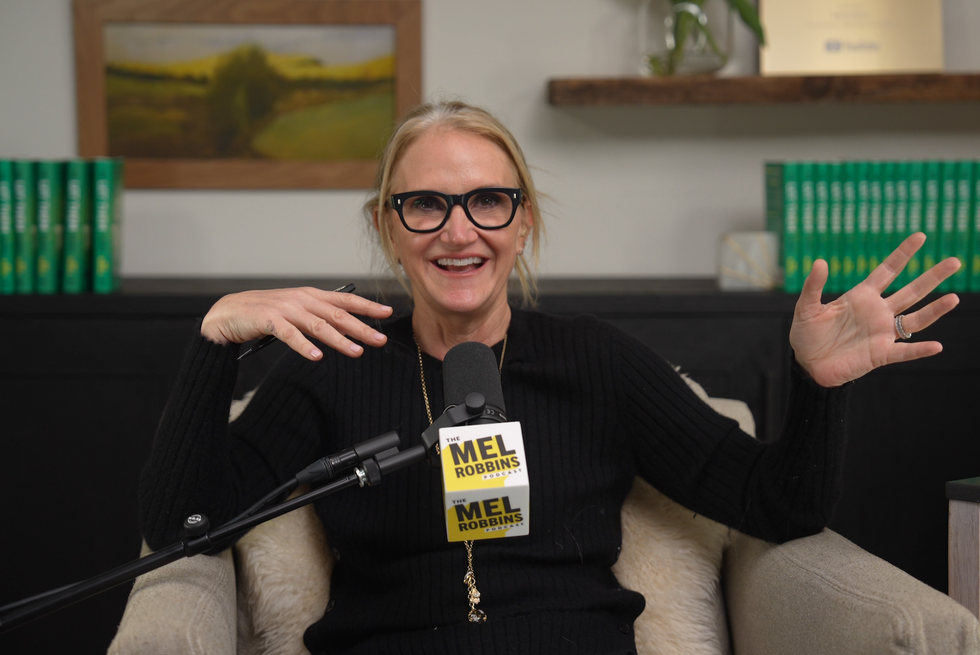
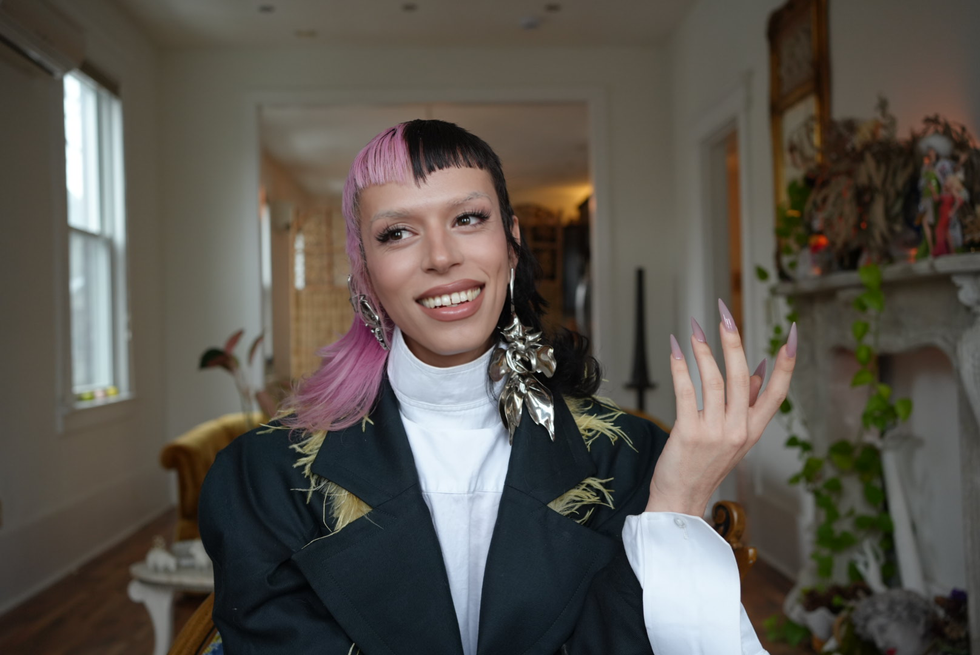
Mel: I agree, it's beautiful. You can tell you believe that because you're glowing. As you talk about it and reflect on it, it beams from every pore.
Jeauni: I think about it all day long. And it brings me to another question about relationships. How do we let our partners exist and be without feeling like we’re giving up on love or connection. Because I just came out of an eight-year relationship and there were moments where, if I had just Let Them, it felt like I was giving up — that the connection would fall apart and that was hard to accept. How do you feel about that?
Mel: I don't know the details of your relationship, but what I will share with you, and then I would love to hear what you're reflecting on, is that for 54 years I thought that trying to change people or control them or worry about them or pressure them or know what’s best for them is how you love them. And actually, that's how you create disconnection, because you're not actually loving, you're judging. Learning how to let people be who they are, and let people be who they're not, and let them change when they're ready, let them heal on their own timelines, let them discover their own ambitions, let them reveal what's important to them through their behavior — that's the way that you learn to love somebody, because you are learning how to accept them as they are and as they aren't. That did not come naturally to me.
So that doesn't mean you are just letting things happen and putting up with behavior that doesn't work for you, because that's where the Let Me part comes in. As you're letting them be who they are and you're removing the tension and the judgment and the change, you're then forced to look in the mirror and say the Let Me part, which is, let me decide what behavior works and what's a deal breaker. Let me decide what are things that I need to make requests around so that I make my needs known, and then I've got to let them either change in response to the things that I'm asking for, or if I actually ask them to change their behavior and they don't, that right there is telling me something: that my needs don't matter.
What it requires you to do, and what it taught me to do, is learn how to love somebody as they are and as they aren't, which builds more connection, because you give somebody the space to be who they are. And then the Let Me part is this understanding that if you want a dynamic and a relationship to change, don't focus on changing the other person. Focus on changing yourself, that's where the power is. Because if you change your energy, or you make your needs known, or you shift the dynamic because of how you show up, that always is going to change your relationship. I stayed in relationships before my husband way longer than I should have, because I was living in this fantasy, refusing to accept the reality of what was happening in my face with this person in the relationship. What is it that you saw when you reflected on it?
Jeauni: I was in a relationship where I was so focused on changing my partner. You need to be this and it'll work. You need to learn how to do this. And some of those things were just so inherently who they were. It was never going to change, and it had been shown to me over and over and over again that it was never going to change.
Mel: Here's what I want to tell you: wanting our relationship to work isn't the problem. Wishing somebody would change is normal. Wanting a better dynamic is a beautiful thing. That's not the problem. The problem is, we have trouble actually seeing people as they are. Being able to see somebody's behavior as the black and white truth about who they are and where you fall in terms of being a priority, that's a superpower. And it allows you to be in a relationship in a very empowered way, because you're actually choosing what is, instead of resisting what is.
Love is very simple and available to all of us at any time.
Jeauni: Once I started to do that, it opened so many doors in my personal life, outside of our relationship. All these beautiful things I had been missing out on and not giving myself because I was so consumed by trying to change someone, and then that was going to give me the love that would give me all of the other things. Had I just let them be, I would have been able to tend to those things. So once I did that, it was so evident that the relationship wasn't right. Now that we're separated, it's so much easier to be friends because I'm no longer trying to make them someone that fits my definition of love.
Mel: Isn't it funny how when you finally have this breakthrough, you realize the only relationships that confused me or had drama are the ones that I was trying to force? When it actually works, and they're who they are and you’re who you are, it’s actually very calm. [Laughs]
Jeauni: [Laughs] I know, and so I see another question that I have here for you: balancing the need for deep connection with others while maintaining our sense of self. How do we fall deep with someone? Because when I fall in love with someone, I am just consumed. And I think a lot of people feel this way, especially if we allow ourselves to. How do we continuously make sure that we keep a pulse on ourselves?
Mel: I think what we do is we mold into one being. I've been with my husband now for 30 years, and we are closer now, not because of time. We are closer now because we give each other space. Part of what makes for a very loving relationship is: number one, you already have an amazing life, you already have an amazing future and you weren't put on this planet to be somebody's partner. The opportunity of being in a loving relationship is that it's additive, that you are allowing someone to be a part of a life that you're already building. That's very different than thinking you’ve gotta chase and find something to make life better. So if you start from that standpoint, it changes how you think about this, that you're letting somebody participate in your life. You're not looking to escape your life into somebody else's.
I love this visual of a seesaw. When you think about any long term relationship, it’s two people deciding to get on a seesaw on the playground of life. And when you're on the playground, it's going to go up, it's going to go down. There are going to be lots of times where you're hanging out in balance. The secret to making a relationship work is: number one, you’ve gotta have two people that get on the seesaw and they stay on their sides. You also have an agreement that you both want it to work. Because if you look back at any relationship that ultimately dissolved, you can see that well before the relationship ended, one of you got off the seesaw. One of you was no longer willing to lean toward the other person and actually try to make it work. And when that happens, boom, the seesaw drops.
The other thing that makes a seesaw drop is when one person climbs off their side and tries to ride on the other side with the other person. And so I think a lot about this seesaw image: am I giving [my husband] enough space to let him be who he is without me needing to attach myself to it? And am I letting me do the things in my life that I enjoy doing without requiring his participation? And that was not something I knew when I was younger. I just thought, You find your partner, you become one amoeba [that] listens to the same music and looks the same and has the same opinions. That creates a certain myth that you're connected. But the truth is, you'll be much stronger if you both feel like you can be yourselves with the other person.
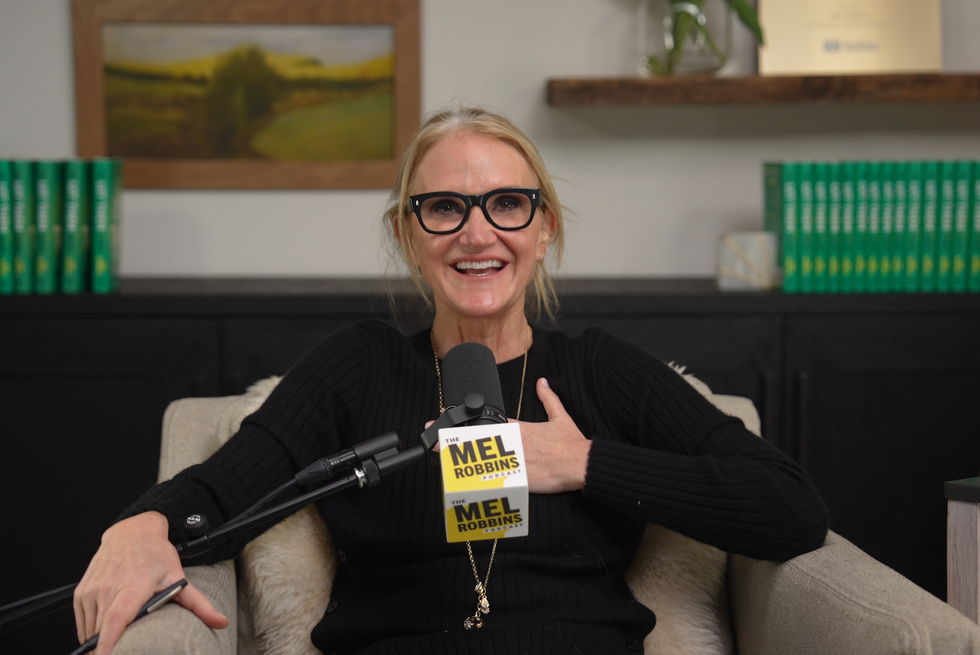
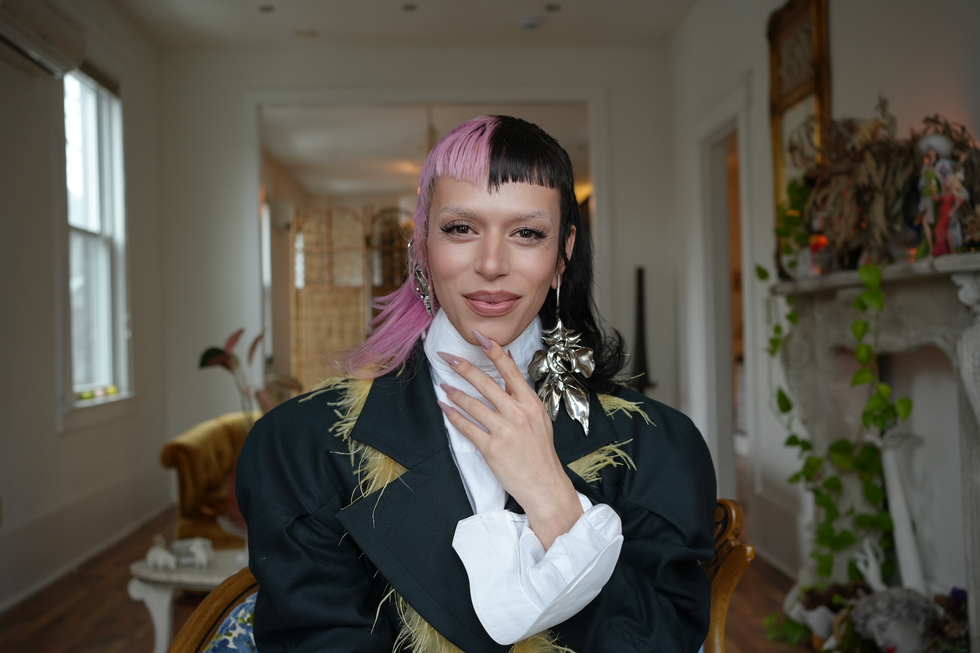
Jeauni: I had a therapist who described it as building a bridge between two planets. Sometimes you walk in the middle and you look at everything together, but then you go back. And sometimes you say, “Okay, come over here. You can come look at my planet and then we'll go to you.” Sometimes we'll be in the middle, but we always have this bridge and we never stay too long on each other's planets, because we still can impact the ecosystem. It’s such a beautiful thing and it reminds me of the seesaw. I love that we create these different analogies that capture what it means to love in a very balanced and beautiful way.
So let's say, when someone decides to get off the seesaw or cut the bridge, how do you think someone can embrace a relationship ending if they feel like they've lost a piece of themselves?
Mel: Well, you have lost a piece of yourself. The thing about a relationship ending is that it's grief, because the life you thought was going to happen just died. I wrote the entire book with my 25-year-old daughter, and we got to the last section of the book, which is all about using The Let Them Theory to stop chasing love, and to actually choose and create love. We get to the part about breakups and all of a sudden, the person she had been with for two years broke up with her. And she literally was like, “I hate this theory. What am I supposed to do? Just let him go fuck somebody? Let him walk out the door? Let him fall in love?” She literally lost her damn mind.
We had to work through heartbreak in real time as we were writing that section, and I never thought about heartbreak like grief. I hate all the advice out there, because it's like, “Love yourself,” and you're like, “I don't love myself. I hate myself, the person I wanted to be with just left. I now feel undesirable, I feel rejected.” The Let Them Theory doesn't take away the pain, because it means that you're mentally well. If you're in pain when somebody that you love says I don't love you back, that is a healthy response to rejection. The thing that we do, though, is we don't understand what is happening. Your entire nervous system and your brain is now having to unlearn life with this person, the patterns of their voice, their presence in your bed, the number of times you text them. It's literally the same as going through a withdrawal from alcohol or sugar or some drug, because you are having to teach your body and your nervous system and your brain how to do life without this person.
These are patterns that need to break, so there's this rule of thumb: a 30-day protocol where you do not look at their location, you remove all photos, you remove all objects. You cannot listen to voice memos. Do not look at their social media, because every time you hear their voice, you actually keep the pathways alive in your body and you are forcing your body to relive a chapter in your life that's closed. So the 30-day protocol is critical, because you've got to give your body and your nervous system time to withdraw from the intensity of the programming of being with this person.
This is why The Let Them Theory is very helpful, because you've got to say, “Let them, let them, let them.” They've already left, so why do you want to be with them? And let me remind myself that there are simple things I can do every day to help me heal and move forward. And the research is also super helpful, because there have been studies about breakups, and 70% of people start feeling better once they pass the 11-week mark. Why? Because you're giving your body and brain time to detox and learn new patterns.
And then there's one more thing our therapist said that is super helpful: if you knew that the person you were going to spend the rest of your life with was literally 18 months from now, you're going to just bump right into them, what would you do with the 18 months that you have right now? That is an act of self-love, because when you ask yourself that question, you have faith that you will find somebody worthy of being with you, and then it gives you this defined amount of time to truly think about, What do I want to do with this time that I have? Instead of worrying. The more that you focus on aligning your life with the actions and the thoughts and the daily small things that you're doing that actually make you feel good about yourself, it's really amazing who actually shows up in your life. But it starts with you.
Jeauni: I've never thought about the neurological connections of not letting someone leave, like, the ghost of them. It's muscle memory. How can your body move on or forget these things if every day you give it the ability to hold on, even if it's just a little? That is so incredible, because I have always had such a hard time letting anyone go.
It starts with you.
Mel: Same.
Jeauni: And it's because I've always revisited all of the beautiful poetry moments of the relationship and the scents and anything that could keep me honoring, as I would have said for so long, honoring the love we've shared.
Mel: Yes, and here's the thing: you can do that, but give yourself the 30-day detox. It's literally like any other addiction or programming in your body that you need time to break the old habit, and then you can replace it with something. And since you won't be in sensory overload, you can actually honor the beautiful memory without it keeping you a prisoner of a chapter in your life that's over.
Jeauni: I still live with my ex of eight years and she's moving out Monday.
Mel: Wow, congratulations.
Jeauni: Thank you. And so I'm like, Oh my goodness. What am I going to hide? What am I going to put away? What am I going to do to make sure that I give my body [time]? Because that's something I'm processing now. I'm so ready for her to leave, but I can feel my body wanting so badly to still have the scents, the sounds, of what it means to have her around every day.
Mel: Well, here's one of the things you can do: recognize that it's going to happen, and recognize that for 30 days you're in this process where you're allowing your body to learn new patterns, the silence in the house, the fact that she's not walking around, the smells in the kitchen. Giving your bedroom a small makeover, even putting your bed on a different wall, because you probably used to at least spend a lot of time in there together. So visually giving yourself this sense that this is a new chapter for me. I'm going to give myself the grace of a month. I'm not going to look at photos, I'm not going to look at videos, I'm not going to check location. I’m just going to allow myself to truly have the runway to grieve and to give myself this beautiful reset in my body, to move forward.
And I think it's really exciting. If you know that the 30 days are coming, you won't mistake these very normal vibrations in your body. Your body's just detoxing, that's all it's doing.
Jeauni: The universe is so good, because this conversation came just when I needed it. I want to ask you, what is one lesson about love, either self-love or relationships that you're still learning today?
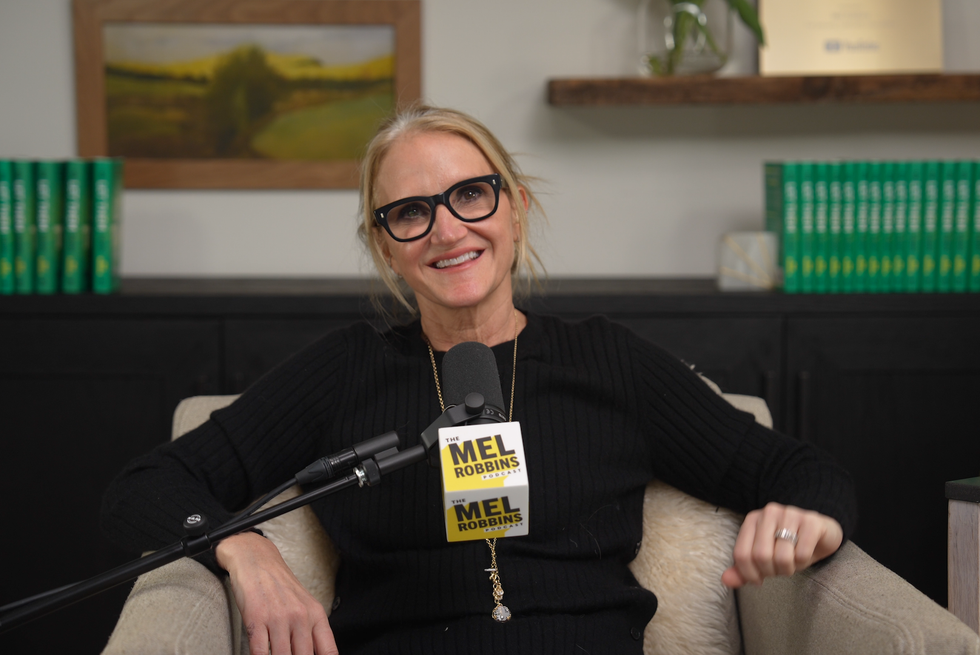
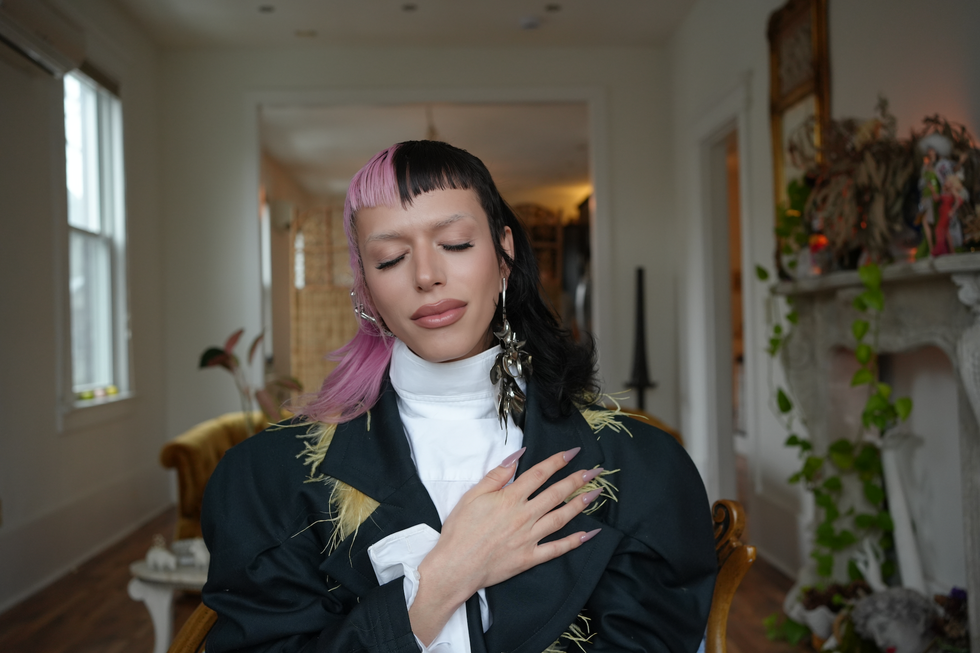
Mel: It's learning how to love somebody who doesn't love you the way you wish they would. I don't know who to credit for this, but I heard somebody say how there are people in life who have a quarter cup capacity and there are people who have a gallon capacity. I'm going to make an assumption that you and I are the same, and we're a gallon capacity person. We run deep, we give a lot. And if you are with somebody who only has a quarter cup to give, if they pour that quarter cup that they have to give into you and me, they've given us everything that they have. But if you're the person whose capacity is a gallon, that quarter cup is going to feel like nothing.
And I think a lot of us have a mismatch with people in our life, where people are giving you everything they have to give based on their life experience, based on where they're at in this moment. And if you're somebody that has a deeper capacity, you're always going to feel thirsty and unsatisfied. And so for me, something that I'm working on is the Let Them part, which is really learning to let somebody be who they are and give what they have to give, and to be grateful and be able to recognize when what somebody has given is actually everything they have to give, even though I wish it was more.
Jeauni: It’s something that I'm still learning to this day, as well. I have a similar analogy that I would like to share with you. I think about this with the person that I'm seeing, I would say to him, “I can run 50 miles per hour and you can only run five. If I expect you to keep up with me all for the sake of saying that you're with me, and I hold your hand, I'm like, 'We're together, we're together,' and I'm so blissfully happy that I'm pulling you along at 50 miles per hour. And if I look over and see that I am dragging you at this point, that you are scarred, because really what should have happened is I should have slowed down and ran the five miles per hour with you, rather than making you run the 50 with me.” And maybe we'll get there, maybe we won't, but we are at a place together that is the max capacity for you and a comfortable one for me. And isn't that enough?
Mel: Are you describing my marriage? [Laughs] I feel like I'm married to a slow walker and a slow talker, and so I feel like I have dragged that poor human being. I guess I need to slow down. I think that's beautiful.
Jeauni: I think that’s reality for us fast walkers, is that we want to love someone that's at five miles.
Mel: And it’s to your point, the very first genius thing that you said is letting somebody love you how they can. Boom, there you go.
Jeauni: Boom, I think that's it. The takeaway from all of this is letting someone love you the way they can.
Mel: You're amazing. Very, very cool conversation, and you have so much to give. So I'm so glad you're doing this.
Jeauni: Thank you so much, I feel the exact same way.
Mel: And I love you!
Jeauni: I love you!
Mel: [Laughs] Awesome. Well, have an awesome day and I look forward to meeting you in person.
Purchase your copy of The Let Them Theory at www.letthem.com.